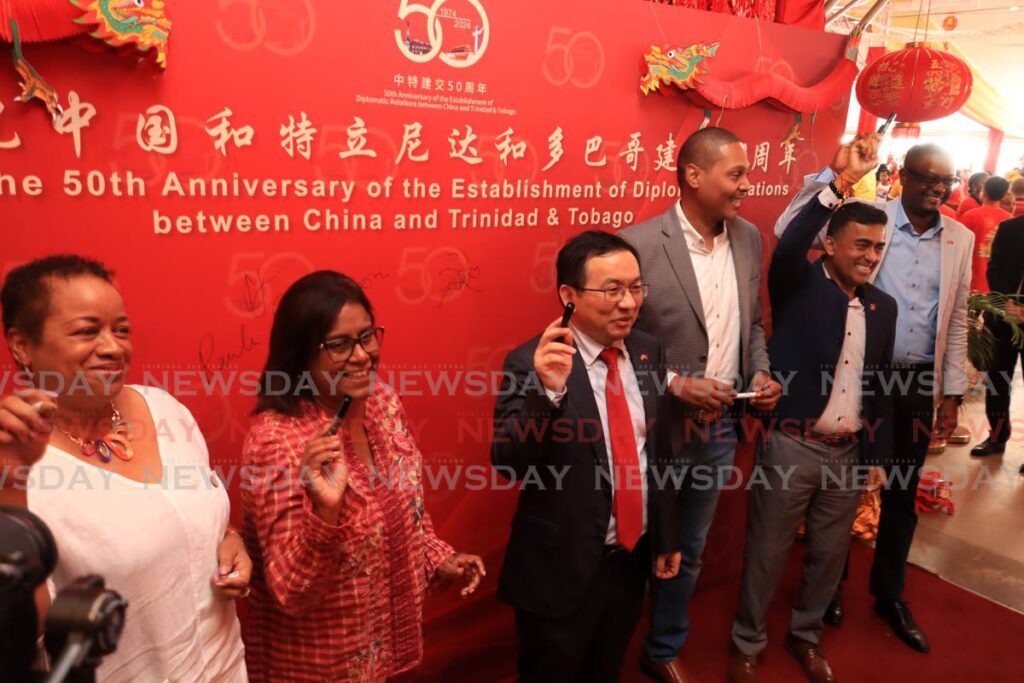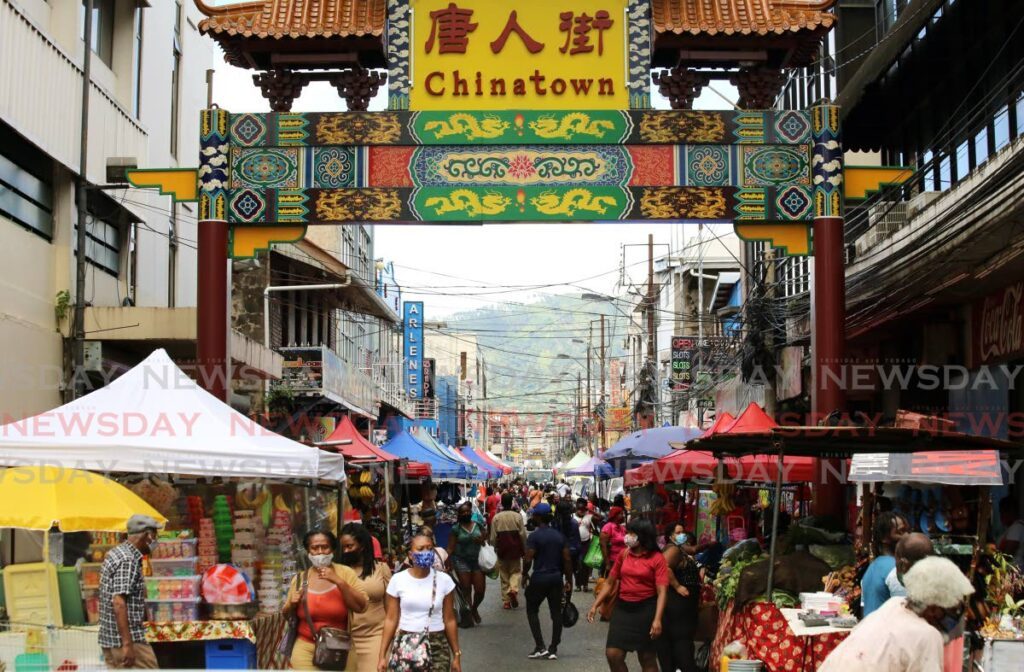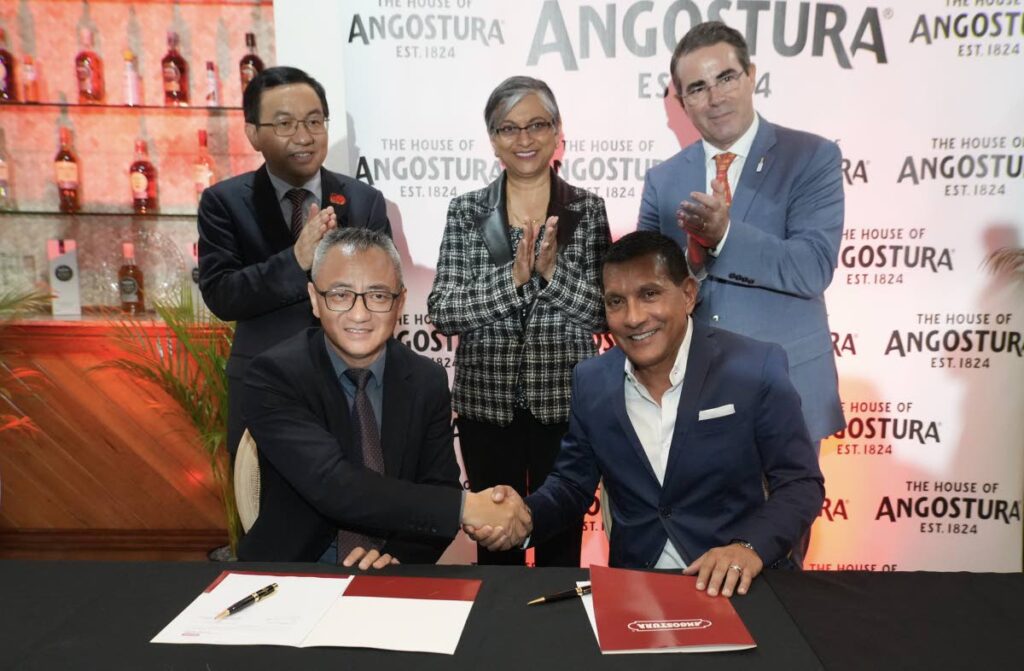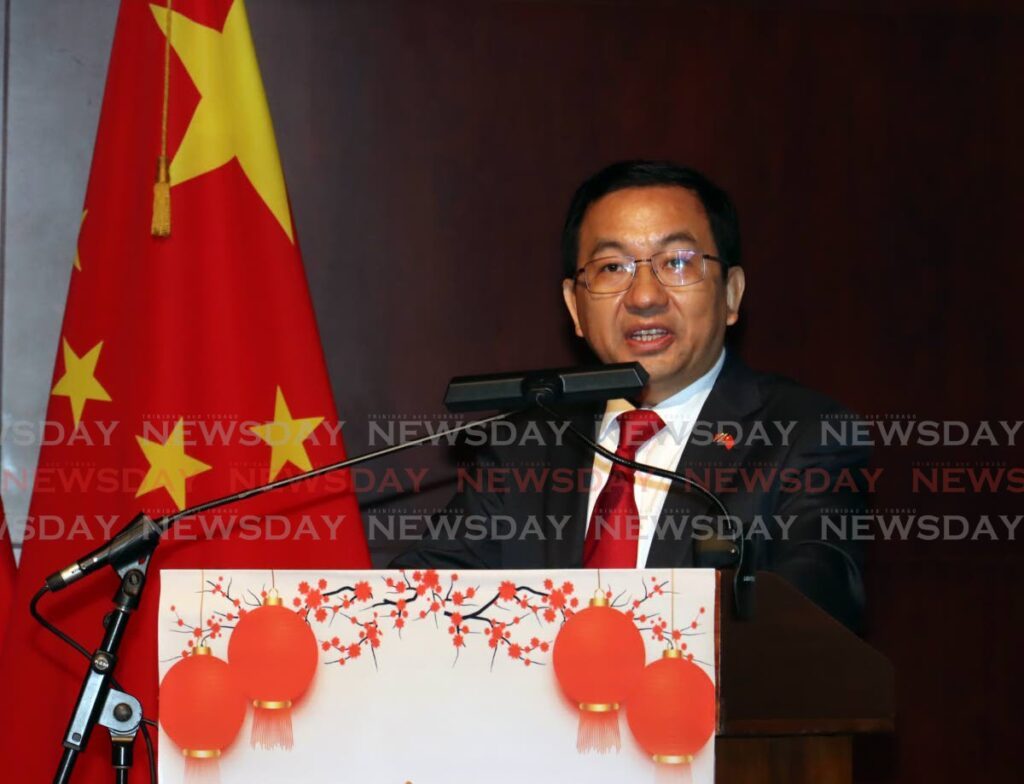Trinidad and Tobago, China relations booming amid 50-year celebrations

FROM Mayaro to Carenage, Chinese restaurants, supermarkets and casinos have lined rural and urban roads, long before Trinidad and Tobago and China established official bilateral trade ties 50 years ago.
While they shared modest relations early on, the trade volume between the two countries has increased significantly in the past decade.
TT became the first English-speaking Caribbean state to cross US$1 billion in trade with China for the first time in 2019, peaking at US$1.34 billion last year.
TT exports mainly comprised energy products, such as liquefied natural gas (LNG) and petrochemicals; imports comprised machinery, electronics, clothing, and other consumer goods.
The trade arrangement has evolved in recent years through legislation, encouraged by China’s ambassador to TT Fang Qiu, who sees the diplomatic ties as a blueprint for equitable partnerships and mutual benefit between countries of all sizes.
“Over the past half-century, our bilateral relations have evolved extensively, with successful pragmatic co-operation across diverse fields,” Fang told guests at a workshop organised by the embassy at the Trade and Investment Convention at the Centre of Excellence, Macoya, this month.Qiu said the rapid economic and trade growth has been “one of the most remarkable accomplishments in China-TT bilateral relations."
The $1 billion milestone “clearly demonstrates the strength and promise of China-TT economic and trade co-operation," he said, stressing that China’s continued development represents valuable global opportunities.
The recent workshop provided a platform for Chinese diplomats to reissue their invitation for TT to invest in renewable-energy sources and other modern industries.

China is the world’s second-largest economy and the second-largest importer of goods and services. It is also the largest manufacturer and overall goods trader.
“With a middle-income group of 400 million people, China offers the largest and most promising market globally,” Fang said, pointing to a 5.2 per cent growth in China’ GDP to RMB126 trillion or US$17.89 trillion in 2023. (Renminbi (RMB) is Chinese for "people's currency," and is often used interchangeably with the yuan (CYN). The yuan is worth about US$0.14 or TT$0.93.)
China’s GDP increased by 5.3 per cent in the first quarter of 2024, with total goods trade crossing RMB10 trillion (US$1.37 trillion) for the first time, marking a new milestone.
“Furthermore,” Fang said, “numerous international institutions have recently upgraded their forecasts for China’s economic prospects…again underscoring the promising future for the Chinese economy.”
The ambassador spoke of China’s successful efforts to modernise and prioritise high-quality development.
“Central to this effort is the promotion of innovative new forces, the widespread adoption of cutting-edge technologies, and a focus on high-tech solutions that emphasise efficiency and excellence,” he said, “all while embracing a more inclusive and mutually beneficial model of economic globalisation.”Chinese brands of electric vehicles, including BYD and MG, have made their way to TT's shores, and have been well-received, Fang said, as has mobile phone and technology giant Huawei, which offers corporate cyber security solutions.
However, he accused Western politicians of perpetuating a “false narrative” of an excess capacity of China’s exports. Western governments’ continued imposition of tariffs on Chinese new energy products, Fang said, was a “clear case of trade protectionism.”
He denied new energy vehicles and solar photovoltaics (which converts thermal energy into electricity) were in excess but said, rather, they were "severely insufficient."
“China’s green products meet global market demand and help countries worldwide achieve their green transitions, making significant contributions to combating climate change and providing new opportunities for small-island developing states such as TT.
“In light of new circumstances and challenges, the stabilising and driving roles of economic and trade co-operation in our bilateral partnership have become increasingly prominent."
The Special Economic Zones Act was fully proclaimed on July 6 to boost foreign investment.
While China’s interests in TT have developed over the past few years, TT has also had its interests represented in China.
From July 1-3, Avinash Singh, Minister in the Ministry of Agriculture, Land and Fisheries, participated in the third China-CELAC Ministerial Forum on Agriculture in Weifang, Shandong Province.
Singh spoke at the opening ceremony and a session on agricultural trade, highlighting co-operation between the two countries and the need for more collaboration to promote food security.
TT is represented in China by Ambassador Analisa Low, who, presenting her credentials to China's President Xi Jinping in Beijing in April, 2023, emphasised the importance of TT’s economic relationship with China.
Xi is familiar with TT, visiting in 2013 for talks with former PM Kamla Persad-Bissessar on energy trade and infrastructure development.

Bilateral trade became more sophisticated in the following years after successful trade missions and closer diplomatic and business-to-business ties between the two countries.
Last week, Angostura announced the resumption of exports to China, after signing a strategic agreement with Caribbean Commercial Management (Hangzhou) Company, a subsidiary of First Caribbean Marketing Company (FCMC) – a leading trader of Chinese goods.
Angostura began exporting to China in 2019 but said it ceased temporarily in 2022 to evaluate its marketing strategies.
Caribbean Commercial Management is responsible for marketing and distributing Angostura products, particularly rum and bitters across mainland China and some of its administrative districts. The company estimated it could attract 11 million consumers if it captured one per cent of the market of legal-drinking-age consumers.
Of mutual interest, the Phoenix Park Industrial Estate at Point Lisas, managed by eTeck, was commissioned in January. It marked the first project completed under China’s Belt and Road Initiative in TT, and is expected to attract local and foreign investment. The estate was built by lead contractor Beijing Construction Engineering Group, alongside local sub-contractors.
TT was the first Caribbean country to welcome the Belt and Road Initiative, a scheme central to Xi’s foreign policy, with 140 countries signed on.
The PM billed the project to facilitate the production of quality TT-made products to international markets.
In May, Minister of Trade and Industry Paula Gopee-Scoon said the industrial estate would cost $688 million and that approximately $641.33 million had been disbursed to the contractor. The balance, she said, was mainly “retention money, for, among other things, the securing of ten investors by the contractor to operate at (the estate).”
In a promotional video, Gopee-Scoon said the park has “significant potential” and “forms part of the government’s plan to boost socio-economic development, diversify the economy, encourage sustainable employment and position TT as a major trade and investment hub in the region.”Fang said the industrial estate provides, not only a new engine for TT’s economic transformation and development, but also “offers an excellent platform for foreign, especially Chinese, enterprises to invest.”
He added that TT presents a promising land for investment and trade for the vast number of Chinese enterprises.
“I, along with the Chinese Embassy, will continue to provide support and services to enhance economic and trade co-operation between our two countries,” he promised.
Chinese businesses in TT
The first recorded group of Chinese immigrants arrived in TT in 1806. In the next few decades, hundreds more made the journey and worked as indentured labourers after slavery was abolished.
Though an ethnic minority, descendants of Chinese immigrants today include engineers, politicians and artists, who often credit the fortitude of their forefathers.
Centuries after the first wave, Chinese immigrants still find themselves on TT shores.

In the back row are Fang Qiu, Chinese ambassador, left, Ava Mahabir-Dass, deputy permanent secretary at the Trade Ministry and Laurent Schun, Angostura's CEO. - Photo courtesy Angostura
Business Day spoke with Jenny Lin, daughter of the proprietors of Fai’s – a popular Chinese restaurant in Tunapuna – who shared insight into the business.
Fai’s opened at its present spot in 1992 after temporarily shutting down and moving after the 1990 attempted coup – the business’s first hurdle.
Decades later, violent crime remains a concern.
“Walk-in robberies have happened. My dad got a few hits on a morning, but luckily no serious injuries,” she said.
“There was one incident in the yard where he was held up too, but other than that, nothing super-serious where there were grievous injuries, thankfully.”
Her parents, first-generation Chinese migrants, tried to get the family to move to the US and Canada for their peace of mind.
“This was during the spate of kidnappings in the early 2000s. My siblings, who're all Americanised are still trying to get me to leave.
Lin shared insight into staffing, why it thrives and her views on the social and economic conditions for future projections.She explained that Fai’s used to employ Chinese cooks but the staff is mostly local.
“Banks started denying them (foreign workers) accounts, even through they were legitimate, with work permits, citing they don’t speak English, which was absolute nonsense.
“I don’t know if that’s just discrimination or some new policy where they assume it’s related to money laundering.”
But, she said, the chefs would “obviously” have to send money back to their families in China.
“When I had to go in to inquire where my chefs’ salaries were supposed to be kept for safekeeping, the bank girl actually said 'Mattress.' Yes, the absurdity.”
She said the restaurant sources its goods from wholesalers, which changed after the pandemic hit. It used to buy raw goods from Wing Sing, which has been on Charlotte Street, Port of Spain, since 1968. Customs and US-imposed restrictions, however, meant the owner had to stop bringing in key ingredients.Now, their goods come from China through the Hong Kong Trading Company in Barataria. The imports include rice, canned vegetables (mushrooms, corn, water chestnut), dried black fungus, MSG, starch, soy sauce, aniseed, white and black pepper and sesame oil from Hong Kong Trading Company.

Business Day asked Lin why most Chinese restaurants in TT, including Fai's, were so resilient.
“Most Chinese restaurants are like mom-and-pop shops; small, family-owned and operated by their own family, with some external staff hired. Costs are lower to run a smaller establishment.
“Maybe because of the culture, we are more in tuned with the people we serve in the community, as we also live there, which makes everyone more comfortable frequenting and supporting each other.
“Chinese restaurants are able to cater to individual preferences in food," she added. "For example, people request more pepper or less salt, and so, it’s more personalised.”
Fai’s has tasted decades of success and Lin remains optimistic.
“Most businesses will continue and thrive and survive with the economy,” she said.
“New restaurants will always continue to open, but some will choose to close due to crime.”

Comments
"Trinidad and Tobago, China relations booming amid 50-year celebrations"